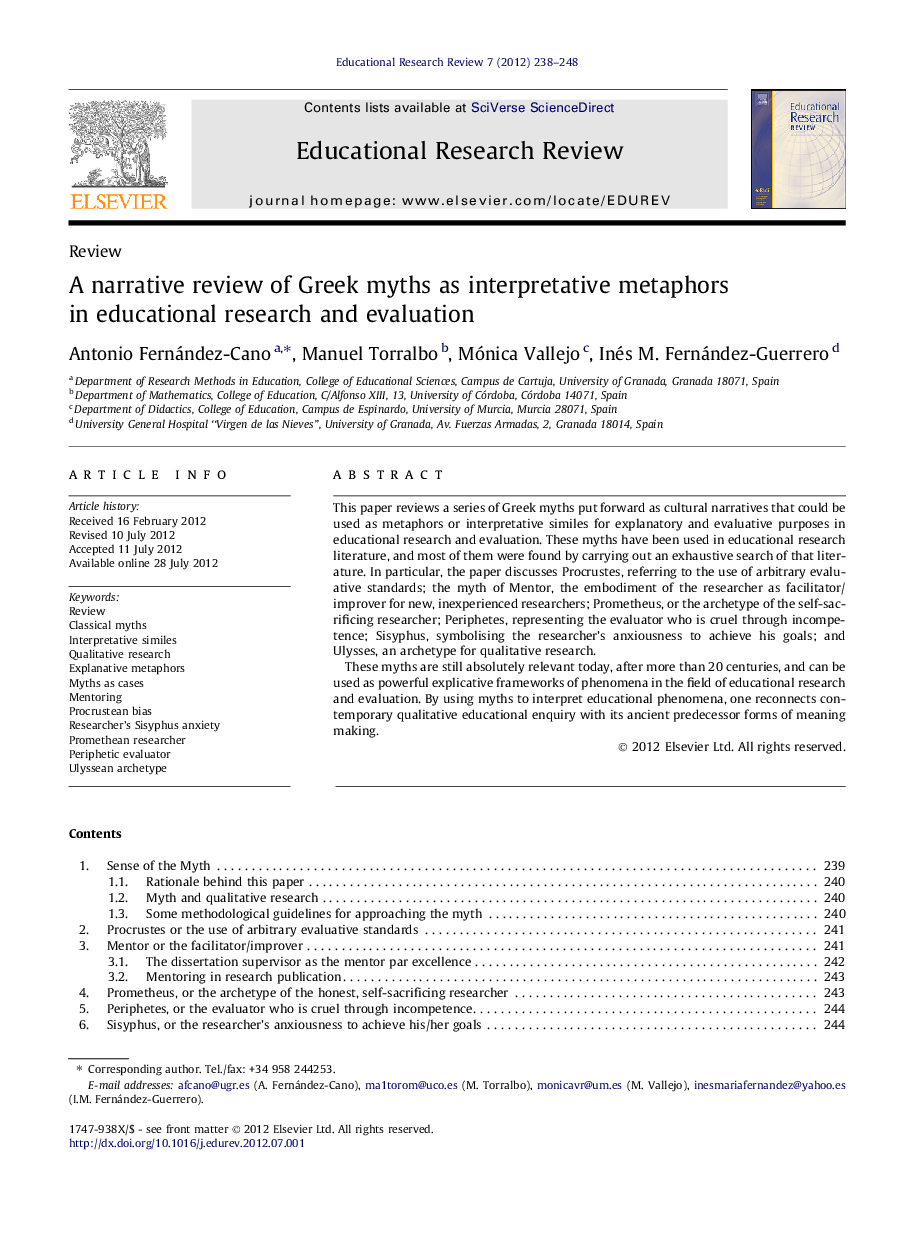| کد مقاله | کد نشریه | سال انتشار | مقاله انگلیسی | نسخه تمام متن |
|---|---|---|---|---|
| 355177 | 619247 | 2012 | 11 صفحه PDF | دانلود رایگان |
This paper reviews a series of Greek myths put forward as cultural narratives that could be used as metaphors or interpretative similes for explanatory and evaluative purposes in educational research and evaluation. These myths have been used in educational research literature, and most of them were found by carrying out an exhaustive search of that literature. In particular, the paper discusses Procrustes, referring to the use of arbitrary evaluative standards; the myth of Mentor, the embodiment of the researcher as facilitator/improver for new, inexperienced researchers; Prometheus, or the archetype of the self-sacrificing researcher; Periphetes, representing the evaluator who is cruel through incompetence; Sisyphus, symbolising the researcher’s anxiousness to achieve his goals; and Ulysses, an archetype for qualitative research.These myths are still absolutely relevant today, after more than 20 centuries, and can be used as powerful explicative frameworks of phenomena in the field of educational research and evaluation. By using myths to interpret educational phenomena, one reconnects contemporary qualitative educational enquiry with its ancient predecessor forms of meaning making.
► Greek myths are used as significant metaphors or interpretative similes in educational research and evaluation.
► This narrative review shows the relationship of these myths with the pedagogical practise and knowledge.
► Procrustes, referring to the use of arbitrary evaluative standards.
► Mentor, the embodiment of the researcher as improver for new, inexperienced researchers.
► Ulysses, an archetype for qualitative research. Others: Prometheus, Periphetes, and Sisyphus.
Journal: Educational Research Review - Volume 7, Issue 3, December 2012, Pages 238–248
